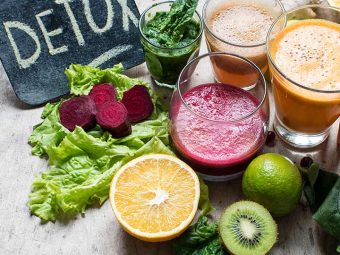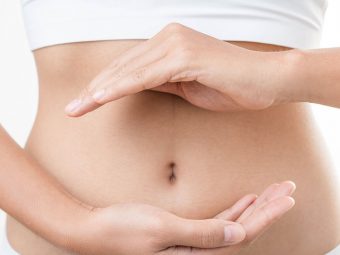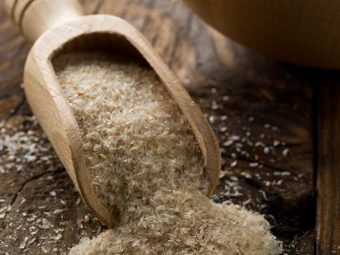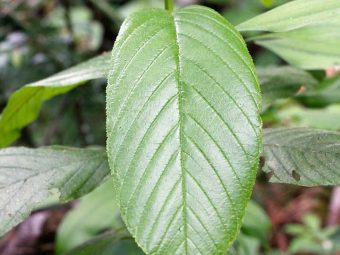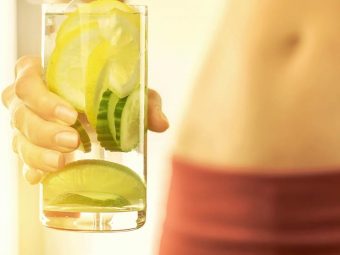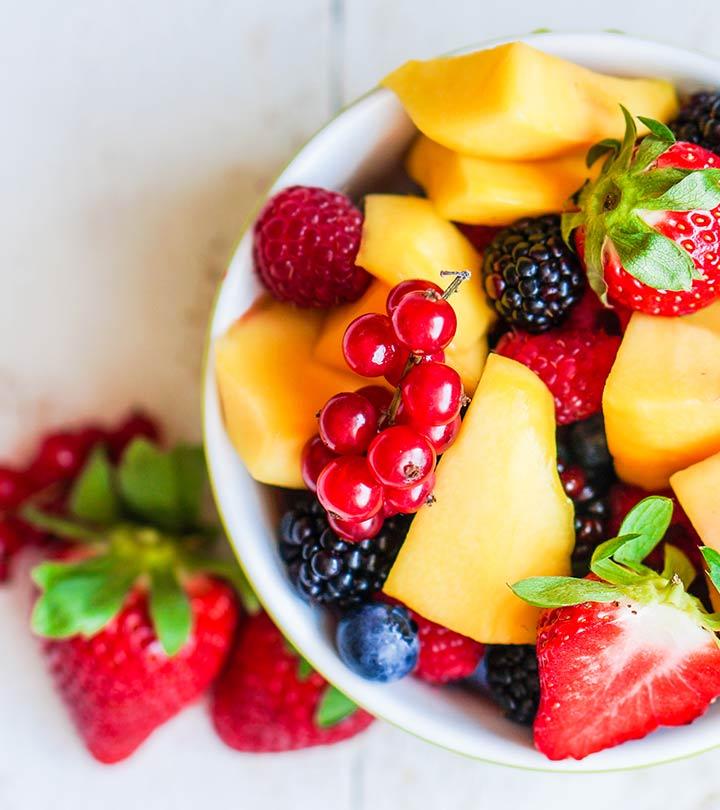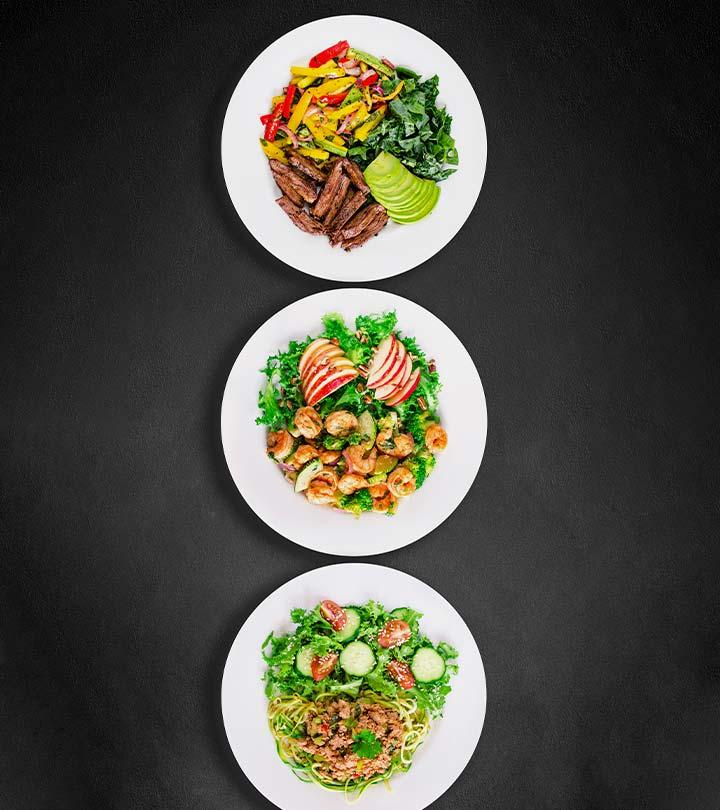Colon Cleanse For Weight Loss – Is It The Best Weight Loss Therapy?

Image: Shutterstock
Are you feeling heavy or bloated? Like you weigh more even though you are eating less?
One of the reasons we may weigh more than our actual weight is the presence of waste on the walls of the colon that does not get flushed out of the system.
Colon cleansing is an alternative method that claims to remove toxic wastes from your gut, which makes you feel lighter instantly. It helps to reduce some pounds by eliminating metabolic wastes from the gut. Also, colon irrigation or colon hydrotherapy aids better digestion and absorption of nutrients.
Let’s check out everything you need to know about colon cleansing and how it helps you lose and manage weight.
In This Article
What Is A Colon Cleanse?
Colon cleansing is a detoxification practice to remove toxic wastes from the walls of the colon to make you feel lighter. It should be done by a doctor or a healthcare professional.
A low-fiber or a high-fat diet often causes foods to move slowly through the colon, which results in the production of excess mucus. Mucus in the colon weighs more than the toxic waste. This makes the elimination of the latter difficult, resulting in putting on extra pounds, excess bloating, and heaviness.
Cleansing colon by colonic irrigation or colonic hydrotherapy triggers bowel movement. These methods involve using cleansing powders, liquids, or water to flush out the toxins.
You can also get an enema done by a trained professional. However, this method is quite painful.
How Does Colon Cleansing Work?
Colon cleansing helps detoxify your gut by removing the waste accumulated in it.
Colon cleanser formulations increase the fluid content in the colon to soften the waste and move it out of the body. They increase the fluid volume in the colon without altering the secretion and absorption of salts, water, or any other compound. Polyethylene glycol (PEG) solution is the most commonly used substance for colon cleansing (1).
Sodium phosphate also works effectively in this regard (1).
How To Cleanse Your Colon For Weight Loss
Colon irrigation (also known as colonic hydrotherapy or colonoscopy) is not the sole solution to cleansing your gut. You can also go for an alternative natural approach to flush out the toxins and lose a few pounds. Scroll up!
1. Eat A Balanced Diet
Eating a balanced diet that is high in fiber and low in fat helps cleanse your gastrointestinal tract efficiently, especially in people with gastrointestinal disorders (2). Here’s what you can do:
- Kick start your day with detox drinks. Have the detox drink on an empty stomach or mid in the afternoon. You can also start your day by drinking warm water.
- Do not skip your breakfast. Your breakfast bowl should contain whole grains and loads of fruits and vegetables along with a portion of lean protein.
- Go for grain-free lunch by adding a bowl of salad to satisfy your craving.
- Fruit juice with pulp, yogurt, buttermilk, salads, soups, etc. will be perfect for you. Steer away from fried and greasy foods.
- If you feel hungry post-lunch, you can snack on any whole fruit.
- For dinner, eat foods that are high in fiber content. Try to eat small portions. Also, eat before 8 pm.
2. Keep Yourself Hydrated
It is very important to keep yourself hydrated. Try to drink enough water, fruit juices (with pulp), or detox drinks to prevent dehydration.
Dehydration is one of the main culprits of constipation, a problem that makes you feel bloated and heavy (3).
3. Supplements For Colon Cleansing
Colon cleansing supplements can be taken orally or rectally to clear your gut. Consult a doctor before taking any kind of supplements. Here are a few colon-cleansing supplements available in the market:
- Laxatives
- Herbal teas
- Colon cleanse capsules
- Colon cleanse powders
You can drink colon cleanse powder mixed in water before dinner to clean your colon the next day.
Under certain circumstances, you can also undergo an enema conducted by a healthcare provider. In this procedure, a trained professional inserts a tube into your rectum and passes a colon cleanser solution into your colon. The tube is then removed, and another tube is inserted. The professional then massages your abdomen to flush out the toxins in your colon through the tube.
Besides these supplements and procedures, you can also try out some recipes to cleanse your colon at home and lose some weight. Check them out in the next section.
Natural (Homemade) Colon Cleanse Weight Loss Recipes
Natural colon cleansing is always better than getting your gut cleansed clinically. Here are a few natural colon cleanse recipes that you can try to shed some pounds.
1. Triphala
Triphala (Tri: three, Phala: fruit) is an Ayurvedic formulation consisting of three fruits – Amlaki, Bhibitaki, and Haritaki. It is a natural laxative that has been used since ancient times for treating constipation (4).
What You Need
- Triphala Powder
- Water
How To Prepare
- Buy Triphala powder available in any pharmacy.
- Add one tablespoon of this powder to a glass of water.
- Drink this every morning without adding any sugar or artificial sweeteners.
2. Lemon And Honey
A study conducted on mice that were fed a high-fat diet found that lemon polyphenols suppress weight gain and body fat accumulation (5). Another study conducted on rats found that honey reduces weight gain and prevents obesity (6)
What You Need
- 1 lemon
- 1 tablespoon honey
- Water
How To Prepare
- Squeeze the juice of half a lemon (you can use the juice of one whole lemon as well) in a glass.
- Add honey.
- Add warm water, stir well, and drink every morning.
3. Senna
Senna is a powerful laxative and colon stimulator. The leaves and pods of senna contain anthraquinones that help in the metabolism and digestion of food (7).
What You Need
- Senna leaves OR a senna tea bag
- Water
How To Prepare
- Take five to six senna leaves and crush them. You can use senna tea bags.
- Boil some water and let it cool down. Pour the water into a cup and add the crushed senna leaves or the senna tea bag.
- Let the goodness of the senna leaves infuse in the water for about 10 minutes.
- Strain well and drink it.
- You can also steep senna leaves in cold water for about 12 hours and drink it in the morning, or take senna supplements.
4. Aloe Vera
Aloe vera contains a host of vitamins, minerals, antioxidants, and amino acids. It has antimicrobial, anti-inflammatory, and antioxidant properties. Aloe vera latex also works well as a laxative (8).
What You Need
- Aloe vera leaf
- 2 tablespoons lemon Juice
- Water
How To Prepare
- Take an aloe vera leaf, split it, and take out the gel.
- Take two tablespoons of aloe gel and put it into the processor.
- Add two tablespoons of lemon juice.
- Give it a spin.
- Add it to a glass of water and drink it.
5. Fiber-Rich Foods
A high-fiber diet aids easy bowel movement and cleanses your gastrointestinal tract. A study conducted on children found that lower fiber intake increases the incidence of constipation (9).
Here are a few fiber-rich foods that you can include in your diet:
Fruits – Papaya, banana, apple, oranges, berries, pears, etc.
Vegetables – Broccoli, artichokes, carrots, spinach, etc.
Bread – Brown or whole grain bread.
Nuts/Seeds – Almond, walnut, flaxseeds, pumpkin seeds, etc.
Whole Grains – Brown rice, black rice, oats, etc.
6. Ginger And Apple Juice
Ginger may help provide relief from abdominal discomfort and bloating and treat constipation (10). Apple is rich in fiber, vitamins, and minerals, and acts as a laxative to ease the elimination of toxins from the gut (11) (12).
What You Need
- 2 apples
- Ginger
- Water
- A pinch of black salt
How To Prepare
- Cut two apples in wedges and throw them into the blender.
- Add a small amount of ginger root or ginger powder to it.
- Add a little water and give it a spin.
- You may add a little black salt for taste.
7. Papaya And Mint Smoothie
Papaya is used to treat digestive disorders. Papaya preparations improve the digestive health and provide relief from bloating, constipation, and heartburn (13).
What You Need
- 1/2 papaya
- Mint leaves
- A pinch of black salt
How To Prepare
- Cut half a papaya into cubes and throw it in the blender.
- Add a few mint leaves.
- Add a little black salt and spin it.
- You may add ice while drinking.
8. Vegetable Juice
It is common knowledge that vegetables are rich in fiber and hold a lot of water. Thus, drinking vegetable juice may help cleanse your colon.
What You Need
- 1 carrot
- 1 tomato
- 2 lettuce leaves
- Spinach
- Lemon Juice
- Salt
- Roasted cumin powder
- Coriander leaves
How To Prepare
- Cut a carrot into small cubes and throw it in the blender.
- Cut one tomato and one cucumber in cubes and put in the blender.
- Add two lettuce leaves and a handful of spinach.
- Squeeze one-fourth of a lemon, add a pinch of salt and spin it.
- Add a pinch of ground roasted cumin powder and few coriander leaves before drinking.
9. Flaxseed And Milk
Flaxseeds are rich in insoluble fiber content that increases fecal bulk, reduces bowel transit time, and acts as a laxative to treat constipation and improve your gastric health (14).
What You Need
- 1 tablespoon flaxseed powder
- 1 glass of low-fat milk
How To Prepare
- Add two tablespoons of flaxseed powder to a glass of warm milk and stir well.
- Add a pinch of cocoa powder before drinking.
- You can also add the flaxseed powder added milk to your bowl of wheat flakes.
Now that you know all about how to cleanse your colon at home, let’s check out some benefits and side effects of this practice.
Other Benefits Of Colon Cleansing
- Helps get rid of the toxins in the colon, helping the colon to absorb nutrients more efficiently.
- Helps revamp your energy and make you feel more active.
- Colonic irrigation treats the symptoms of irritable bowel syndrome, like abdominal pain, constipation, and diarrhea (15).
- Makes you feel better and more focussed.
- Prevents constipation and improves digestive health.
Side Effects Of Colon Cleansing
- May cause nausea, dizziness, and cramps.
- May lead to a perforated bowel.
- May lead to infection.
- May wash out the good bacteria in the colon.
- On the day of the cleanse, absorption of nutrients or medicines might get hindered.
- May cause an imbalance in the minerals present in the body.
Here are some do’s and don’ts you need to keep in mind to practice safe color cleansing.
Do’s And Don’ts For Safe Colon Cleansing
| DOS | DON’TS |
|---|---|
| Drink adequate water every day. | Avoid foods that are high in fat content. |
| Start your day with a detox drink. | Do not get a colon to cleanse done without consulting your doctor. |
| Exercise. | Do not opt for enema frequently. |
| Eat veggies and fruits. | |
| Get good sleep. |
Conclusion
Colon cleansing is not the best method for weight loss, but it is an effective way to clean your gut and remove the toxins accumulated in it. It makes you feel lighter and more energized and helps you lose some pounds by removing the undigested foods from your large intestine.
Go for natural colon cleansing techniques rather than enema or colon irrigation methods. Consult a doctor before going for any clinical treatment.
Frequently Asked Questions
Is colon cleansing safe?
Colon cleansing is safe if you go for a natural cleansing method. Before attempting to lose weight by cleansing your colon, you must consult your doctor. Colon cleansing can have adverse effects if your medical condition does not allow you to opt for it. Even if you want to take Ayurvedic capsules or powders, you must consult your doctor. If you opt for an enema, make sure it is done by a trained professional. Do not get enema done very frequently.
How much weight can you lose through colon cleansing?
Realistically, you can lose up to two to six pounds, depending on the amount of waste present in your colon. But, do not depend on or make colon cleansing a frequent habit to lose a few pounds as it can be harmful. I would advise you to eat healthily, keep yourself hydrated, get proper sleep, and exercise regularly to lose weight the healthy way. Being active will not only make you physically healthy but also improve your mental health.
How often should you cleanse your colon?
If you are using a natural cleansing method, you can cleanse your gut twice or thrice a week. But is you are opting for a clinical method, consult your doctor to figure out how frequently you can get it done safely.
Is enema more effective than laxative capsules?
If you are comfortable with an enema, and if you get it done by a trained professional, it can show good results. However, I prefer Ayurvedic laxative powders or capsules. If you want to get your colon cleansed, consult your doctor first.
References
Articles on StyleCraze are backed by verified information from peer-reviewed and academic research papers, reputed organizations, research institutions, and medical associations to ensure accuracy and relevance. Read our editorial policy to learn more.
- Tan, J J Y, and J J Tjandra. “Which is the optimal bowel preparation for colonoscopy – a meta-analysis.” Colorectal disease : the official journal of the Association of Coloproctology of Great Britain and Irelandvol. 8,4 (2006): 247-58. doi:10.1111/j.1463-1318.2006.00970.x
https://pubmed.ncbi.nlm.nih.gov/16630226 - Brotherton, Carol S., et al. “A high fiber diet may improve bowel function and health-related quality of life in patients with Crohn’s disease.” Gastroenterology nursing: the official journal of the Society of Gastroenterology Nurses and Associates 37.3 (2014): 206.
https://www.ncbi.nlm.nih.gov/pmc/articles/PMC4260718/ - Arnaud, M J. “Mild dehydration: a risk factor of constipation?.” European journal of clinical nutritionvol. 57 Suppl 2 (2003): S88-95. doi:10.1038/sj.ejcn.1601907
https://pubmed.ncbi.nlm.nih.gov/14681719 - Peterson, Christine Tara, Kate Denniston, and Deepak Chopra. “Therapeutic uses of triphala in ayurvedic medicine.” The Journal of Alternative and Complementary Medicine 23.8 (2017): 607-614.
https://www.ncbi.nlm.nih.gov/pmc/articles/PMC5567597/ - Fukuchi, Yoshiko et al. “Lemon Polyphenols Suppress Diet-induced Obesity by Up-Regulation of mRNA Levels of the Enzymes Involved in beta-Oxidation in Mouse White Adipose Tissue.” Journal of clinical biochemistry and nutritionvol. 43,3 (2008): 201-9. doi:10.3164/jcbn.2008066
https://www.ncbi.nlm.nih.gov/pmc/articles/PMC2581754/ - Nemoseck, Tricia M., et al. “Honey promotes lower weight gain, adiposity, and triglycerides than sucrose in rats.” Nutrition research 31.1 (2011): 55-60.
https://pubmed.ncbi.nlm.nih.gov/21310307/ - Izzy, Manhal et al. “Review of efficacy and safety of laxatives use in geriatrics.” World journal of gastrointestinal pharmacology and therapeuticsvol. 7,2 (2016): 334-42. doi:10.4292/wjgpt.v7.i2.334
https://www.ncbi.nlm.nih.gov/pmc/articles/PMC4848256/ - Evaluation of the nutritional and metabolic effects of aloe Vera, Herbal medicine: Biomolecular and clinical aspects, US National Library of Medicine, National Institutes of Health.
https://www.ncbi.nlm.nih.gov/books/NBK92765/ - Morais, M B et al. “Measurement of low dietary fiber intake as a risk factor for chronic constipation in children.” Journal of pediatric gastroenterology and nutritionvol. 29,2 (1999): 132-5. doi:10.1097/00005176-199908000-00007
https://pubmed.ncbi.nlm.nih.gov/10435648 - Gupta, Y K, and M Sharma. “Reversal of pyrogallol-induced delay in gastric emptying in rats by ginger (Zingiber officinale).” Methods and findings in experimental and clinical pharmacologyvol. 23,9 (2001): 501-3. doi:10.1358/mf.2001.23.9.662137
https://pubmed.ncbi.nlm.nih.gov/11876024 - Nutritive value of apples, raw, with skin, US Department of Agriculture, Agricultural Research Service.
https://fdc.nal.usda.gov/fdc-app.html#/food-details/171688/nutrients - Bae, Sun Hwan. “Diets for constipation.” Pediatric gastroenterology, hepatology & nutritionvol. 17,4 (2014): 203-8. doi:10.5223/pghn.2014.17.4.203
https://www.ncbi.nlm.nih.gov/pmc/articles/PMC4291444/ - Muss, Claus et al. “Papaya preparation (Caricol®) in digestive disorders.” Neuro endocrinology lettersvol. 34,1 (2013): 38-46.
https://pubmed.ncbi.nlm.nih.gov/23524622 - Goyal, Ankit et al. “Flax and flaxseed oil: an ancient medicine & modern functional food.” Journal of food science and technologyvol. 51,9 (2014): 1633-53. doi:10.1007/s13197-013-1247-9
https://www.ncbi.nlm.nih.gov/pmc/articles/PMC4152533/ - Hsu, H-H et al. “Treatment of irritable bowel syndrome with a novel colonic irrigation system: a pilot study.” Techniques in coloproctologyvol. 20,8 (2016): 551-7. doi:10.1007/s10151-016-1491-x
https://pubmed.ncbi.nlm.nih.gov/27194235



